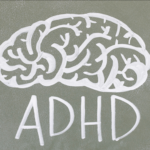Attention-Deficit/Hyperactivity Disorder (ADHD) and anxiety are two common mental health conditions that can significantly impact an individual’s daily life. While medications like Xanax and Ritalin are often prescribed to manage these conditions, therapy offers substantial benefits that should not be overlooked. This article explores the advantages of therapy for individuals with ADHD and anxiety, emphasizing the importance of comprehensive treatment beyond medication.

Content
Therapy for ADHD
1. Behavioral Therapy
Behavioral therapy is a cornerstone in treating ADHD. It focuses on modifying negative behaviors and developing positive habits. Techniques such as reward systems, time management skills, and organizational strategies are often employed. These skills can help individuals with ADHD improve their focus, reduce impulsivity, and enhance their overall functioning.
2. Cognitive Behavioral Therapy (CBT)
Cognitive Behavioral Therapy (CBT) is highly effective for ADHD. It helps individuals recognize and change negative thought patterns that contribute to their symptoms. CBT can improve self-esteem, reduce procrastination, and enhance problem-solving skills, enabling individuals to better manage their ADHD symptoms.
3. Parent Training and Family Therapy
For children with ADHD, involving parents and family members in therapy can be crucial. Parent training programs teach caregivers how to provide structure, set consistent expectations, and use positive reinforcement. Family therapy can improve communication and strengthen family relationships, creating a supportive environment for the child.
Therapy for Anxiety
1. Cognitive Behavioral Therapy (CBT)
CBT is also a primary treatment for anxiety disorders. It helps individuals identify and challenge irrational fears and anxieties. Through CBT, patients learn coping strategies, such as relaxation techniques and mindfulness, which can significantly reduce anxiety symptoms.
2. Exposure Therapy
Exposure therapy is particularly effective for phobias and social anxiety. It involves gradually exposing individuals to feared situations in a controlled manner, helping them build tolerance and reduce their anxiety over time. This therapy can be life-changing for those with severe anxiety.
3. Acceptance and Commitment Therapy (ACT)
ACT encourages individuals to accept their thoughts and feelings rather than fighting them. This approach helps patients develop psychological flexibility and commit to actions that align with their values, even in the presence of anxiety. ACT can lead to improved emotional regulation and a greater sense of well-being.
The Role of Medication
Medications like Xanax and buy ritalin without prescription can be beneficial for managing ADHD and anxiety symptoms. However, it is crucial to use these medications under the guidance of a healthcare professional. Medications can address the chemical imbalances in the brain, but they do not teach coping strategies or behavioral changes necessary for long-term management.
1. Xanax for Anxiety
Xanax (alprazolam) is a benzodiazepine that provides rapid relief from anxiety symptoms. It is typically prescribed for short-term use due to the risk of dependence and potential side effects. While it can be effective, it should be complemented with therapy to address the root causes of anxiety.
2. Ritalin for ADHD
Ritalin (methylphenidate) is a stimulant medication commonly used to treat ADHD. It helps increase attention and decrease impulsivity and hyperactivity. However, like Xanax, it should be part of a broader treatment plan that includes behavioral strategies and therapy.
Conclusion
While medications like xanax online no prescription and Ritalin can provide relief from ADHD and anxiety symptoms, therapy offers a holistic approach that addresses the underlying issues and teaches essential coping skills. Behavioral therapy, CBT, parent training, and other therapeutic interventions can lead to lasting improvements in the lives of individuals with ADHD and anxiety. Combining medication with therapy ensures a comprehensive treatment plan that promotes long-term well-being and better quality of life.

Nancy Bonney is a health blogger and the founder of her own blog about fitness. She has been blogging for three years now and loves to share what she learns with others. Nancy enjoys reading, cooking, and staying active outdoors.







